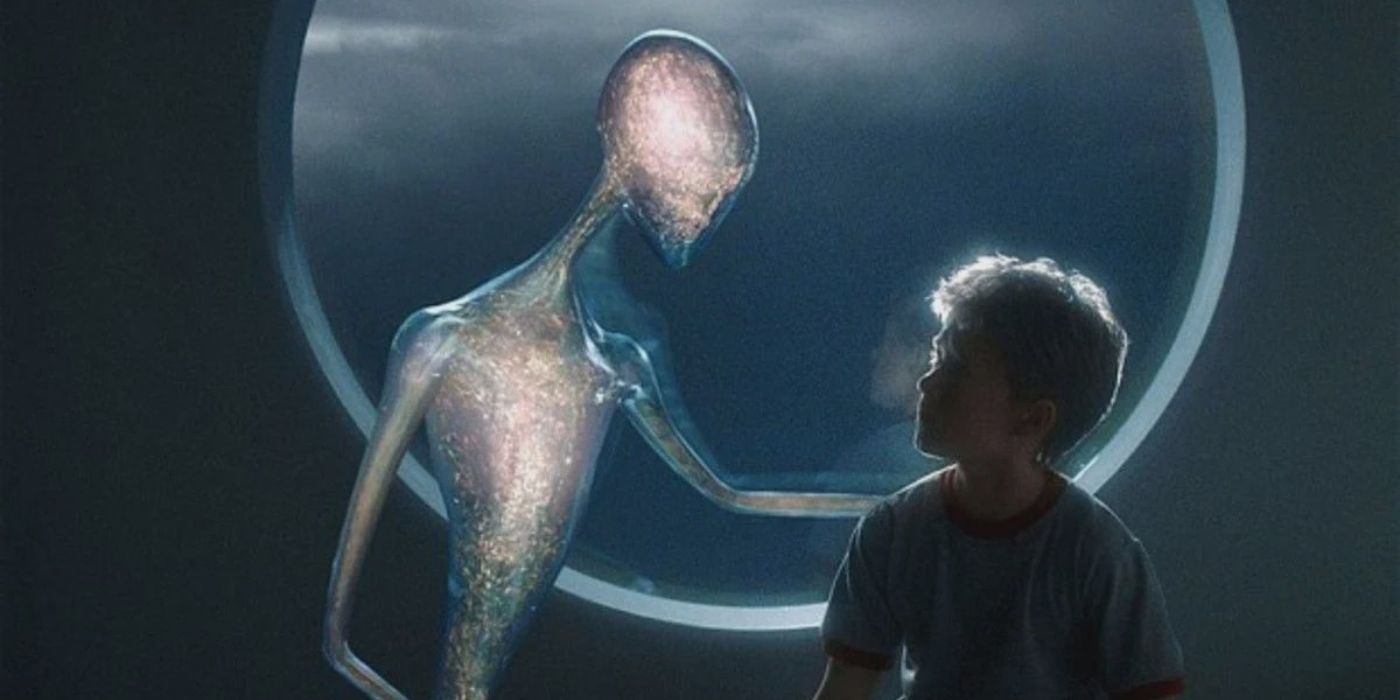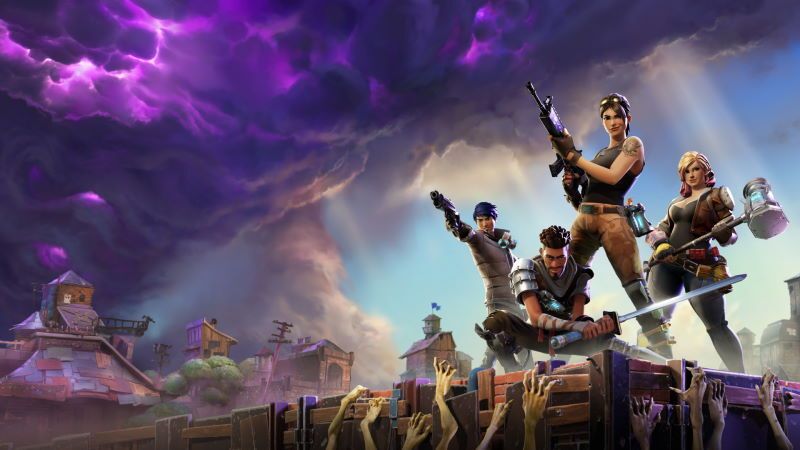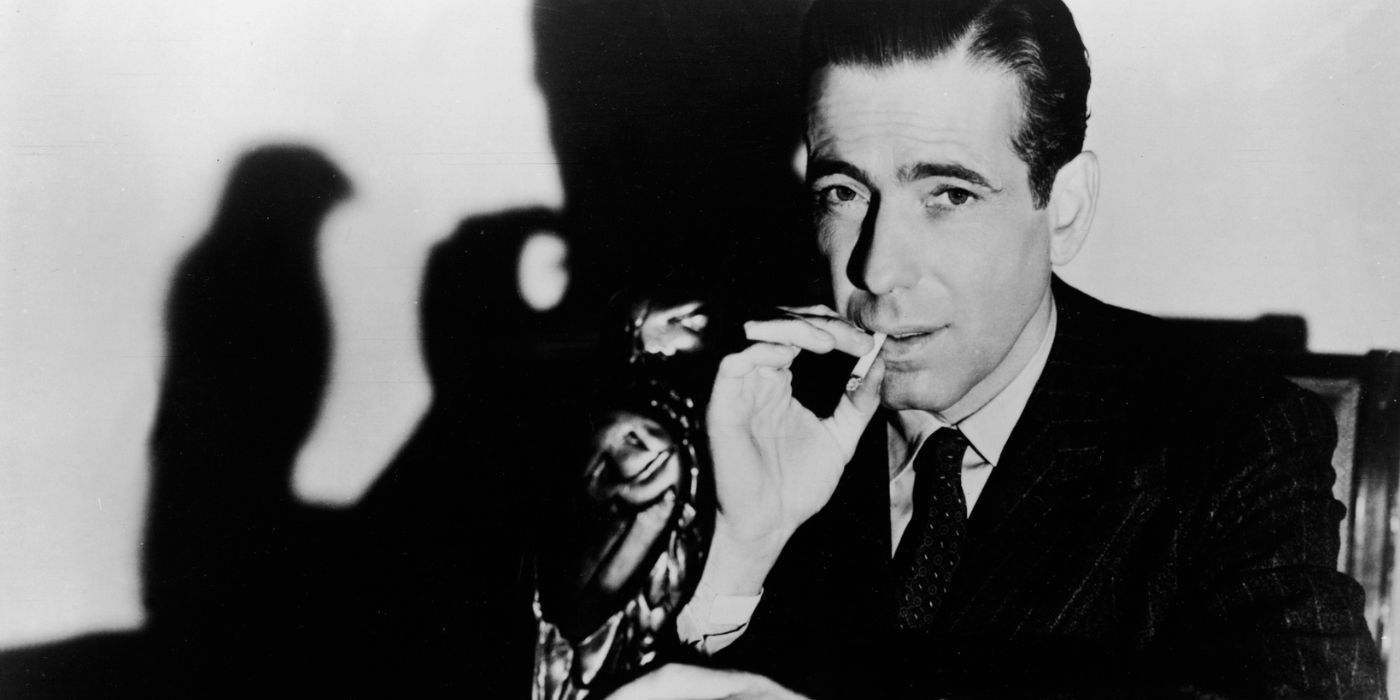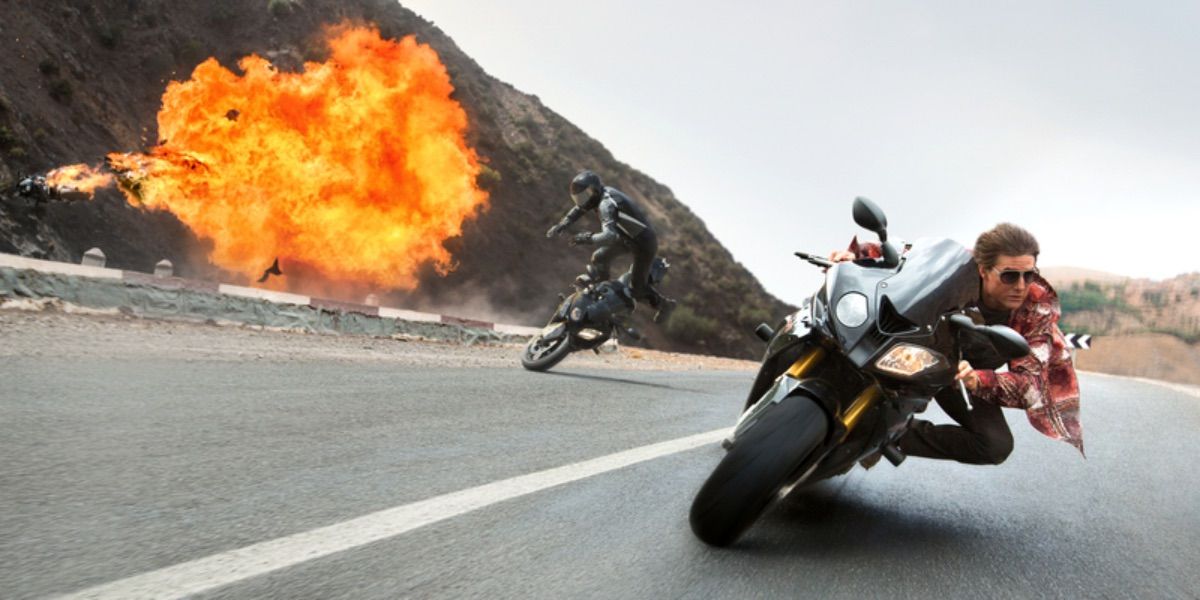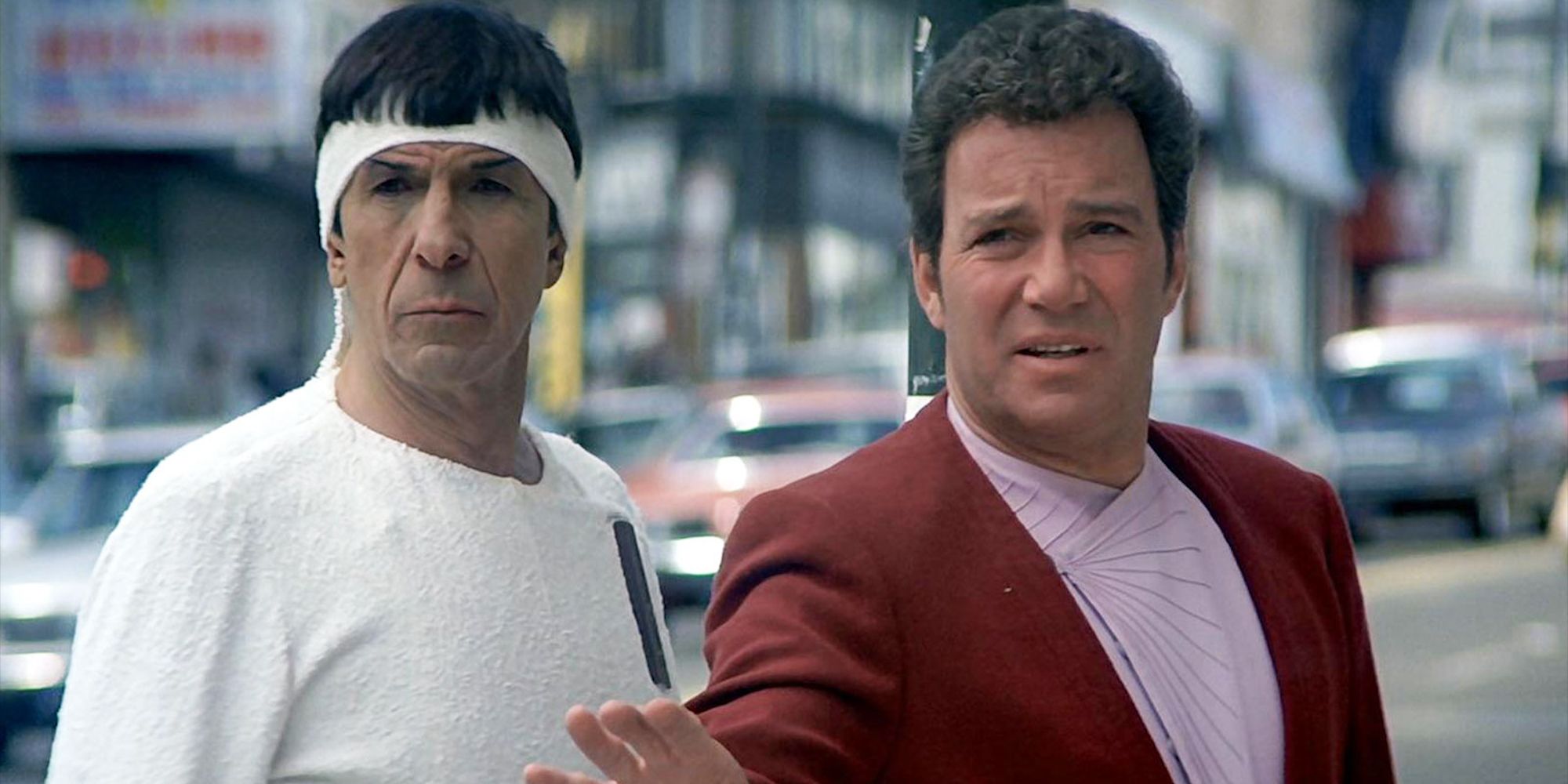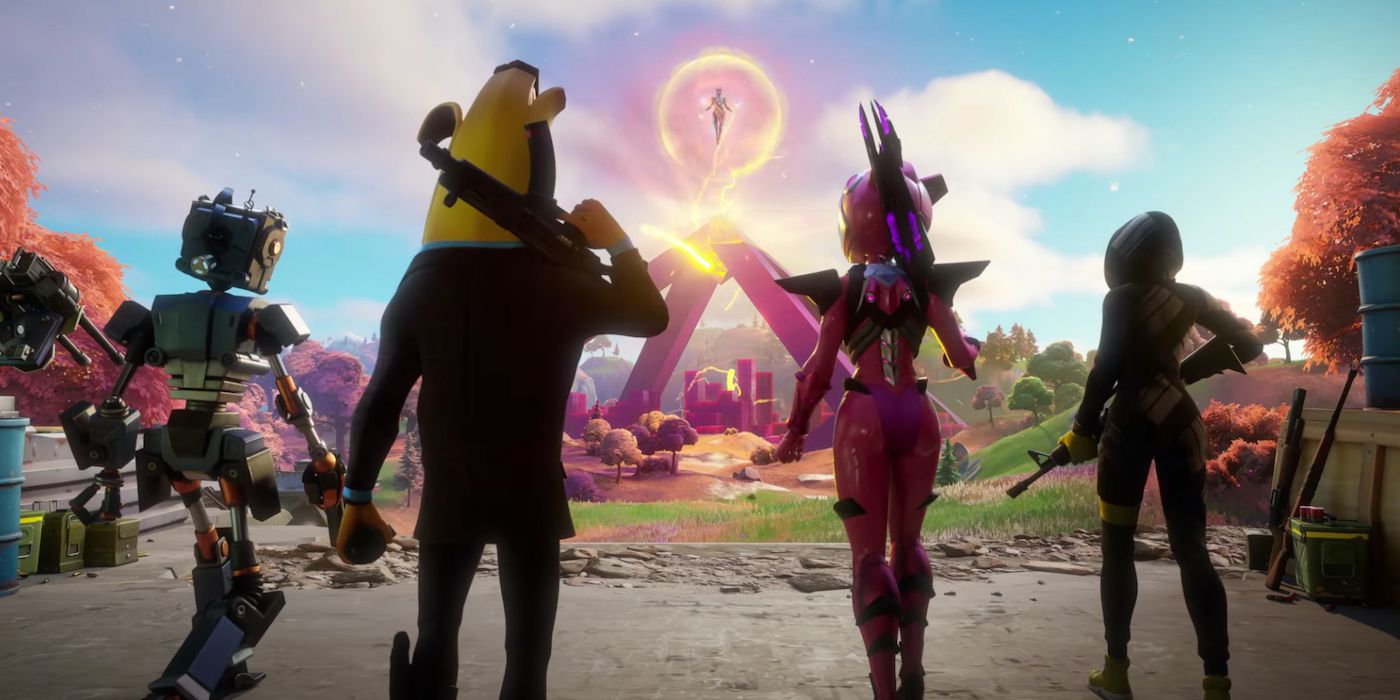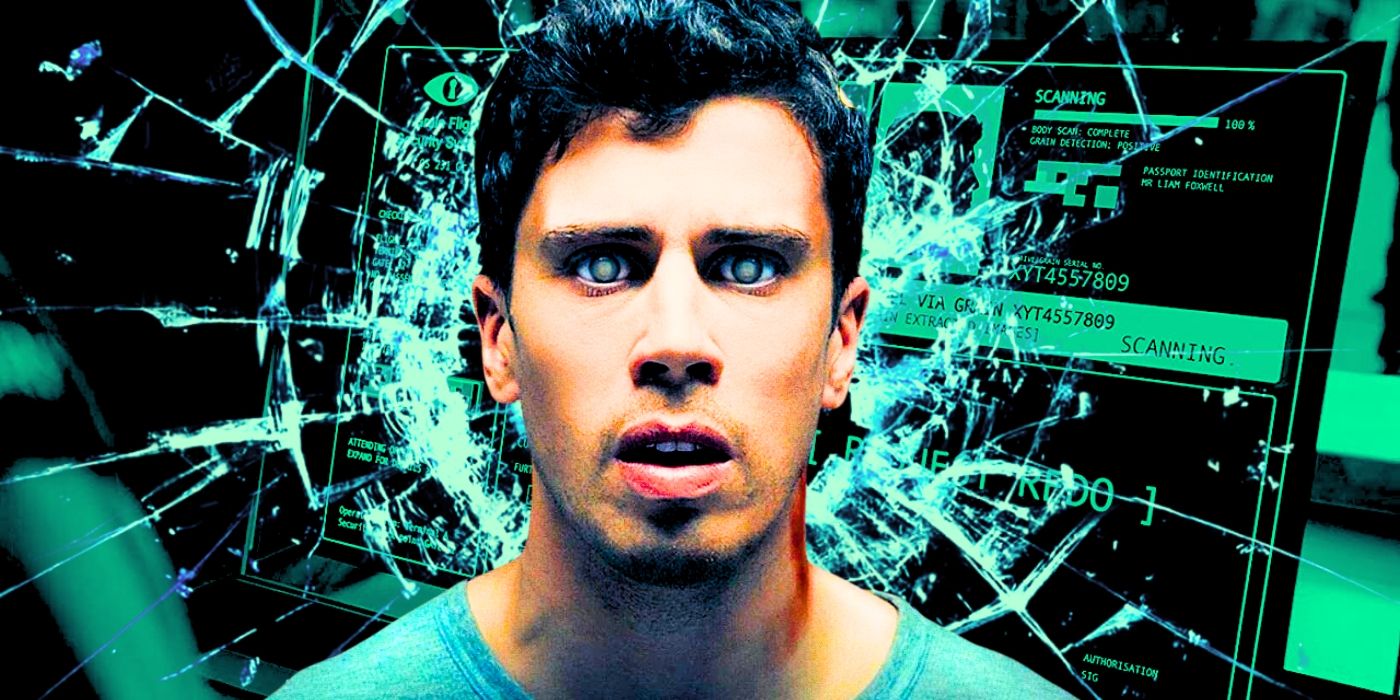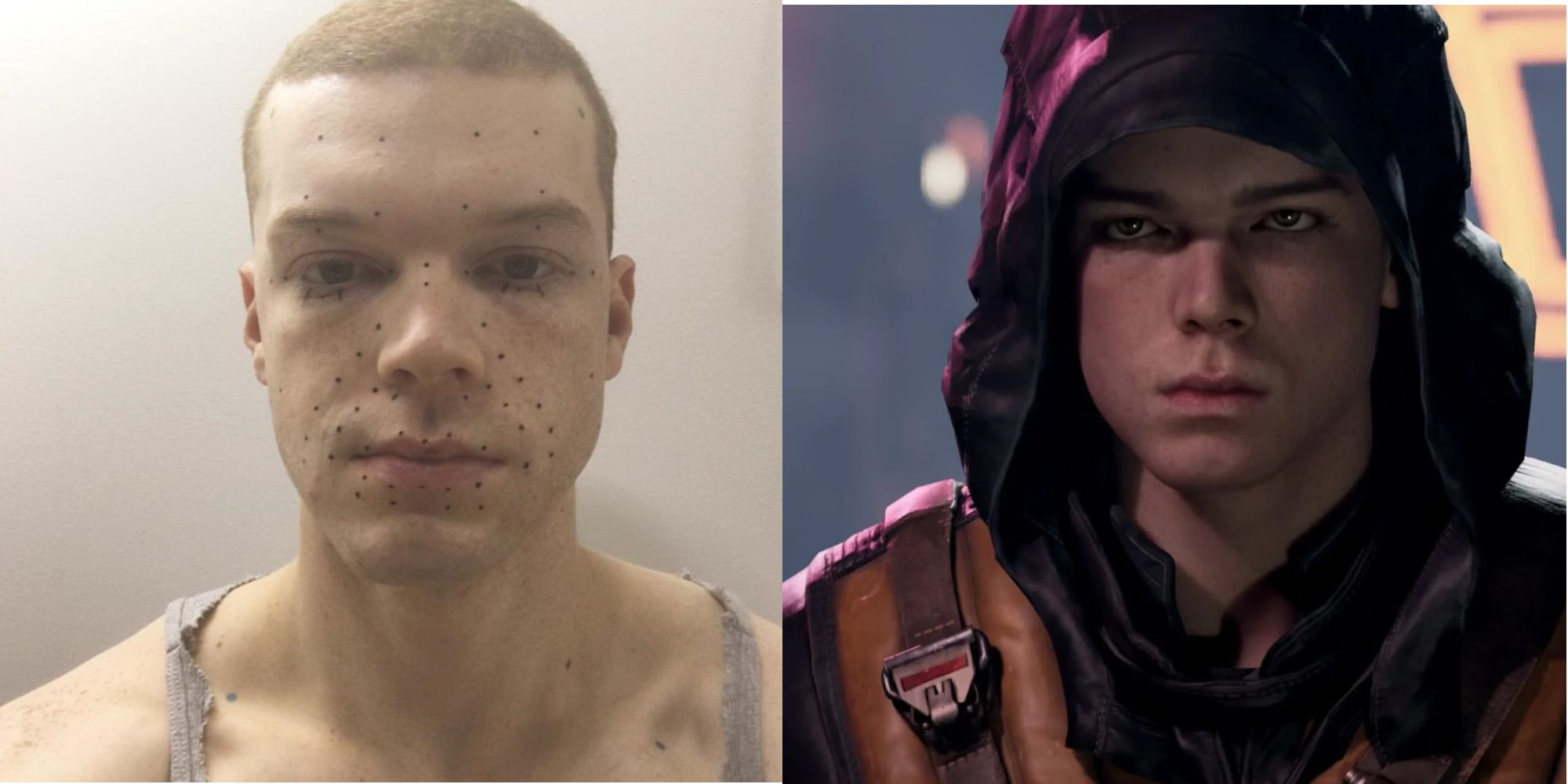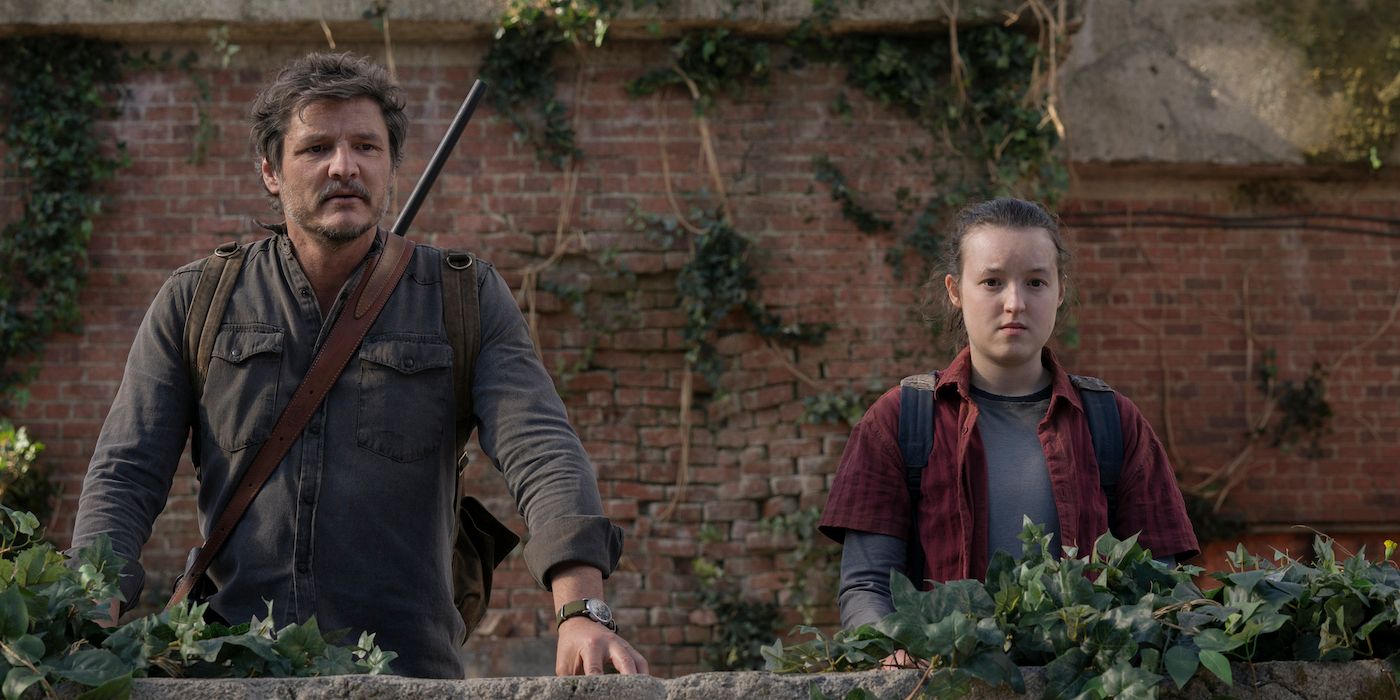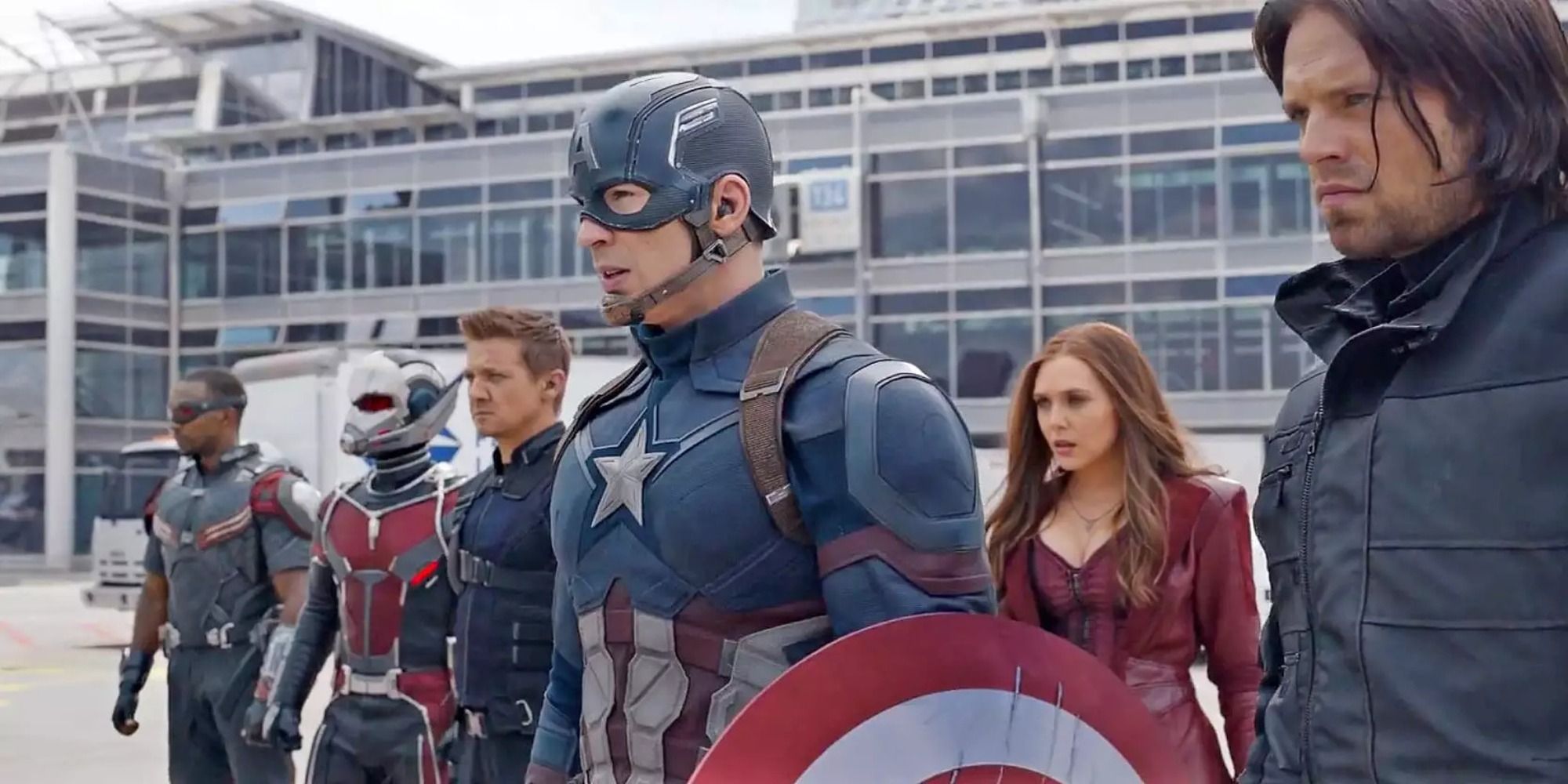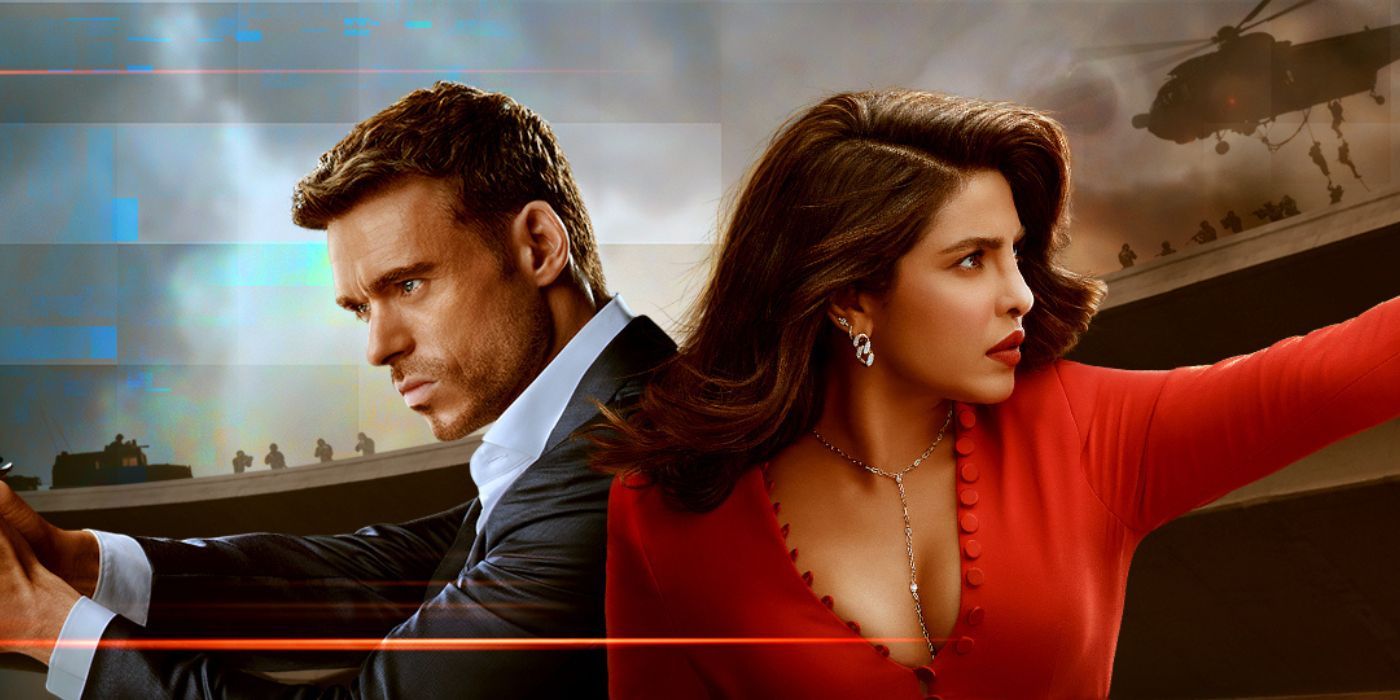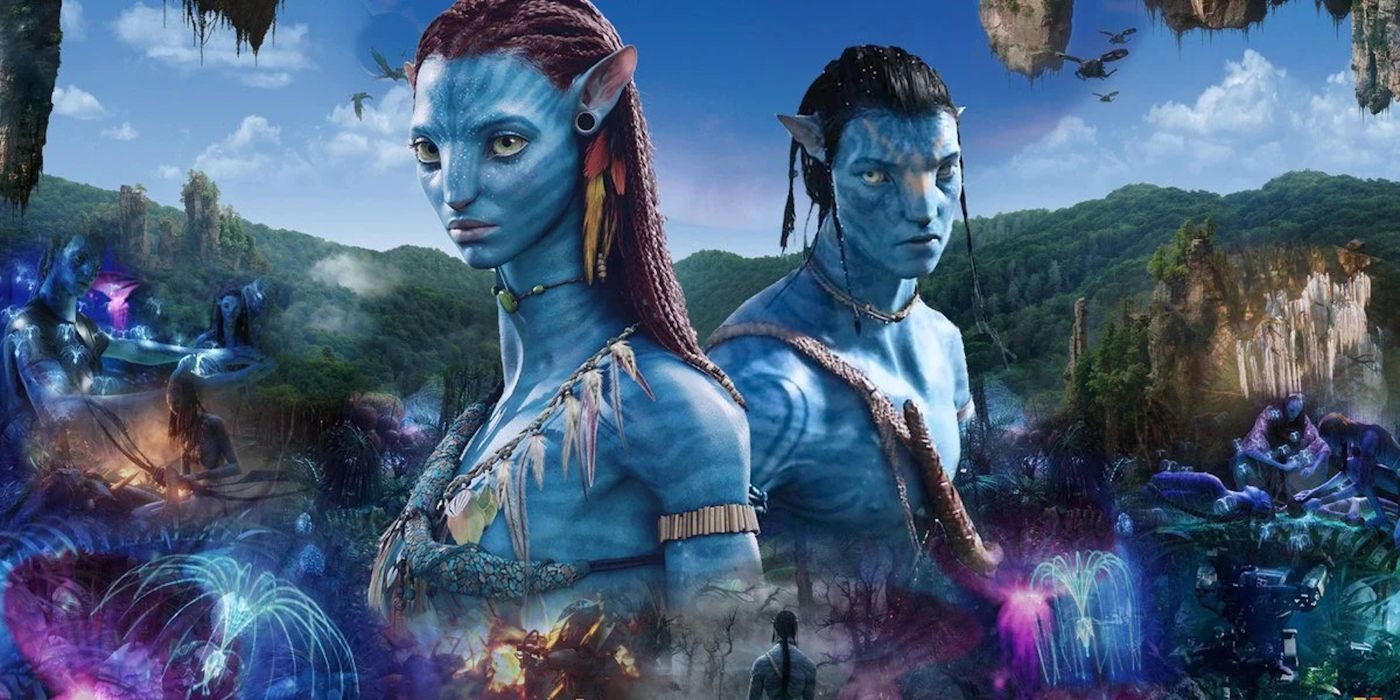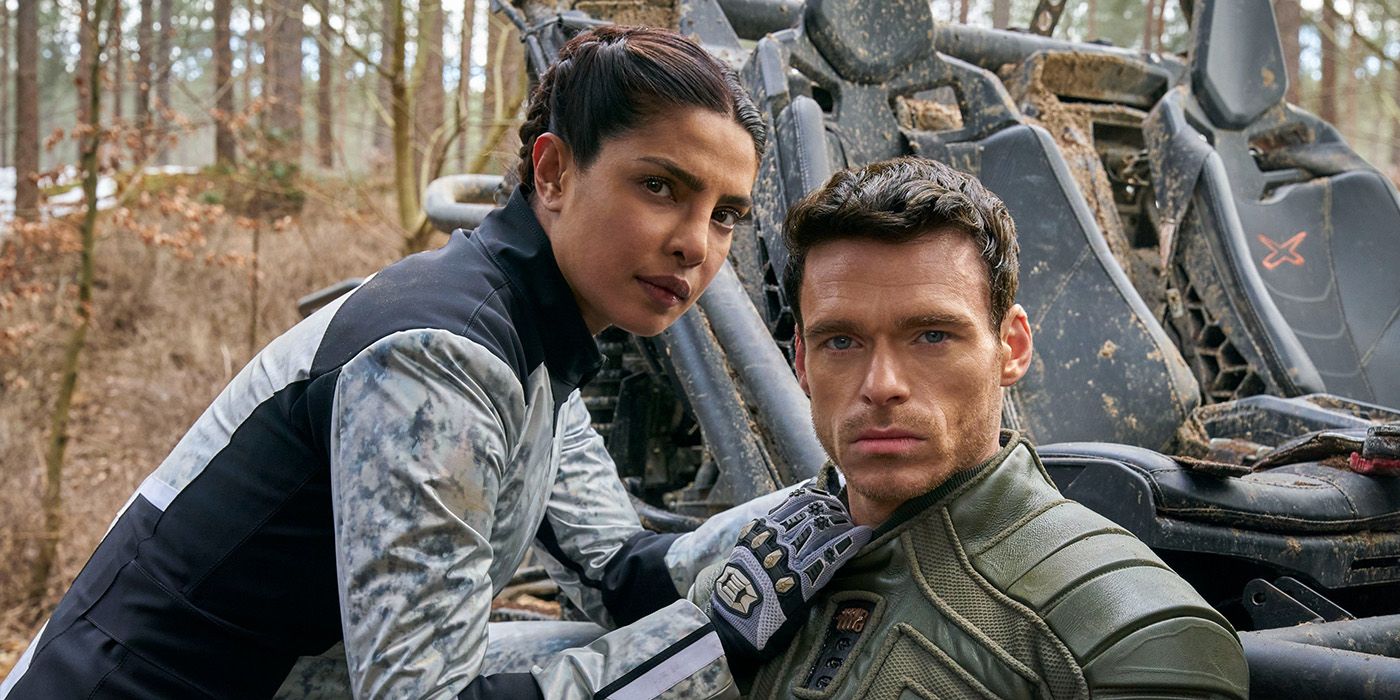While at the Sands International Film Festival in St. Andrews, Scotland, Collider’s Steve Weintraub had the opportunity to moderate a panel with Joe Russo (co-director Avengers: Endgame), and Chief Creative Officer at Epic Games, Donald Mustard. The focus of the panel was on contemporary storytelling, gaming, and looking to the future in all things video games, movies, and television.
During the discussion, which you can read in the full transcript below, Russo and Mustard delve into topics like curating entertainment in real-time with AI, how far away this not-so-distant future really is, Unreal Engine, and how new technology will empower more storytellers without the means to massive-scale teams. They also share historic moments with the latest technologies, shifting entertainment away from corporations, building IP, and the possibility of someday buying into IP as a bundle. Read on for more on Gen Z’s influence over where we’re headed, a Fortnite movie, and more.
COLLIDER: Donald, I want to start with you. What means more to you, your cameo in Avengers: Endgame or playing yourself in The Matrix Resurrections?
DONALD MUSTARD: Endgame, of course. That is the highlight of my life, actually.
JOE RUSSO: Yeah, I don't know if you know, he was a wizard in the background of the fight at the end of Endgame.
MUSTARD: No, I mean, really that was– you know, having a scene with Robert Downey Jr. and [Benedict] Cumberbatch, I definitely stole the scene. He had to really cut me down a bit. He tore the script up.
RUSSO: Yeah, exactly.
I do have another individual question for you Donald. I’m curious, when did you realize that Fortnite was not just another game and was going to become this worldwide phenomenon?
MUSTARD: That's a great question, [to Russo] and this is interesting to see what you say about this too. Whenever I'm making something, I'm always just trying to make something that's awesome, that we think is awesome, that I think is awesome that I wanna play and I wanna watch, I wanna see. Previous to Fortnite, we made this game called Infinity Blade, and I was doing this interview with USA Today, like the day before it came out, and they're like, “So what do you think? Do you think it's gonna be a success?” And I just kind of looked around the office and I'm like, “Well, I think there's at least five people that are gonna play this thing,” and it went on to sell 100 million copies, or whatever.
So with Fortnite, we knew we had something special. We loved it. We're playing it, and we're like, “Man, this is really, really, really cool.” But after that first month or two, and it was already, you know, it was 50 or 60 million people were playing it and we were getting millions and millions of downloads a week, I could just tell it had the life to it that it was like, “Okay, now we can really start pushing some of the ideas that we were working on together really early on,” right? Of like, “Okay, what could you do if you have this kind of an IP, essentially? How do you really take it to the next level?”
RUSSO: Then why the lower res rather than photoreal? And why did you go with the more, quote-unquote, analog approach to?
MUSTARD: For me, it was like, “How do you create an entertainment experience or an entertainment IP that could authentically put together all these other IPs?” My dream was, could there be a place where you could go hang out with all your friends, and if someone wanted to dress up as Batman and someone else wanted to dress up as Iron Man and someone else wanted to dress up as a weird, sentient banana thing, that they could all coexist together authentically? And, at least at the time, I really felt like if we had this kind of unified art style, it would allow them to all kind of translate to that in a way that would let them nestle together and kind of sit there, and all look really cool. And, we also just thought there was just a really kind of broadly appealing global style that everyone–
RUSSO: Because I think it was probably one of the more important decisions that you made as a stylist. It was a choice with a very strong motivation behind it, which was, you always had this idea that you could build a community, and you wanted that community to pull from all different parts of pop culture that also have new ideas in it, and so you felt like a universal graphic approach could accommodate whatever you wanted to bring into it.
MUSTARD: That’s right. That’s exactly right.
When Will AI Take Over the World... of Entertainment?
I want to open the door to a conversation that a lot of people are having in every industry, which is AI. I'm curious for both of you, how do you think AI is going to play out in the world of video games, and in the world of movies and television?
RUSSO: This is like a mind-bending question, right? I mean, we've had conversations about how it can be used, and look, Gen Z is very unique because it's a generation that has– If there were incremental movements in technology over the last, say, 100 years, 150 years, they were the first generation with an exponential movement, right? So there's a real possibility now for technology to become a really important factor in our lives because it's been embraced by Gen Z, and they grew up with it, they understand it, they know how to use it. That's important, right? We're not in a world where, you know, your uncle doesn't know how to send emails anymore. We're in a world where the entire generation has a facile expertise in it, and is also not afraid of it.
So potentially, what you could do with it is obviously use it to engineer storytelling and change storytelling. So you have a constantly evolving story, either in a game or in a movie, or a TV show. You could walk into your house and save the AI on your streaming platform. “Hey, I want a movie starring my photoreal avatar and Marilyn Monroe's photoreal avatar. I want it to be a rom-com because I've had a rough day,” and it renders a very competent story with dialogue that mimics your voice. It mimics your voice, and suddenly now you have a rom-com starring you that's 90 minutes long. So you can curate your story specifically to you.
That's one thing that it can do, but it can also, on a communal level, populate the world of the game, have intelligence behind character choice, you know, the computer-run characters in the game that can make decisions learn your play style, make it a little harder for you, make it a little easier for you, curate the story. Say you want Fortnite to be more of a horror game, right? Then you could ask the AI to ramp up the horror elements of it. So again, you could curate your experience.I think that's where it's going. How quickly we get there, I don't know, but that's where it's going.
MUSTARD: Yeah, and I agree. And I also think that we're not, to kind of facilitate that, we're really not that far off from where some of the real-time engines like Unreal Engine that we use to make Fortnite, and lots of other games– Just because we chose the art style that we chose for Fortnite doesn't mean that we can't do… I mean, we're very close to where you could be almost perfect photorealistic, real-time rendering, the real-time meaning you could render it at 60 frames a second, which would facilitate what you're saying. Or, on the fly, you could be like, “Yep, I wanna star as myself in a movie,” and you could watch it. And even the TVs that Samsung and a lot of companies are making now, they already have enough processing power just in the TV itself where we're just not very far off, where you could render anything in real-time. We jest about being in Endgame, but there'll be that, too, where it's like you could go back and watch some of your favorite movies or new things, and be like, “No, I want to see myself in the big battle in the background.”
RUSSO: “Make me Doctor Strange.”
MUSTARD: It’ll just be able to conk you in and swap it out in real-time, and just do it all right there. And so, I don't know the timeline, but I don't think it's super far away.
RUSSO: Can I ask the audience, is this something that excites you or scares you? Excited?
[Few replies from audience]
RUSSO: Scared?
[More replies]
MUSTARD: Scared? And maybe we should be scared, right? I don't know, I kind of think, just like any new tool or any new form, artists and craftspeople, we'll find ways to create new, awesome things with it. And it's really just that, it's another exciting, cool technology.
I have to say, though, that while you guys are clearly excited about this technology, I just think about it from the perspective of all the bad actors that are going to abuse this technology, and where are the guard rails? Because there doesn't seem to be any guard rails right now that can prevent certain people from ruining someone else's life.
RUSSO: Certainly in the nascent stages, yeah, that is a critical issue. I'm on the board of a few AI companies, I'm gonna speak from my experience of being on the board of those companies is that, there are AI companies that are developing AI to protect you from AI. And unfortunately, we're in that world, and you will need an AI in your life because whether we want to see it developed or not, people who are not friendly to us may develop it anyways. So, we're going to be in that future. The question is, then, how we protect ourselves in that future?
How many years do you think before AI can actually create – this is obviously a guess – but how long before AI can create a movie that's like, “Oh wait, that's AI, and that's a movie?”
RUSSO: Two years?
MUSTARD: Yeah, less.
What about games? Because I don't actually know what it's like to design a game, but will people in the real world be able to go to some chat box, whatever, and say, “I want a Star Wars game that looks like Fortnite but does this and does this,” and boom, it renders?
MUSTARD: I think eventually, yeah, it'll get there, but I think it'll, for a while at least, require strong curation, right? And I think if you look at some of the – I don't wanna get this totally wrong, I apologize to the people who make it, but you see, even now, there's some of the special effects houses, and some of these YouTubers are out there, and they're really kind of– I saw a video the other week where they just kind of shot themselves against a green screen, but then ran all these AI scripts on top it and it turned it into this amazing… it looked like the coolest anime you've ever seen. But it took them–
RUSSO: It was an overlay.
MUSTARD: It was an AI overlay, but it was just thousands and thousands of prompts, and then going and creating all this crazy stuff over months to kind of figure out this thing. But through that heavy creation, it created incredible art, right? And so, I think it's gonna be that for a long time.
RUSSO: You bring up a great point. It's one thing to talk about, which I think is really valid here, right? As I said, we just have to assume we're gonna be in the future, so that future whether we want it or not. But the value of it is the democratization of storytelling. That's incredibly valuable. That means that anyone in this room could tell a story, or make a game at scale, with the help of a photoreal engine or an engine and AI tools. That, I think, is what excites me about it most.
I heard that there are some VFX companies – let's see if this is accurate, if you've heard about it – that have been testing deepfake and AI, where they've been doing little clips with Humphrey Bogart and Bruce Lee in a car together. Like taking two different people from two different eras that have obviously passed and doing something with them, and making it look pretty real.
RUSSO: Yeah, and this is something you did with Fortnite, right? Whatever I dreamt of I could cross-pollinate from the world. That's a desire we all have, right? And what if I could take Humphrey Bogart and put him in a movie with George Clooney? What would that be?
So, it's part of the art of it is, taking ideas– This is not different than 30 years ago when, if I'm going to meet you at dinner and I'm late, I have to pull over, pull a quarter out of my pocket, put it on the phone, dial a restaurant, ask the restaurant to look for someone who looks like you, and then you use a giant book that was a map to figure out how to get to the restaurant, I didn't know where it was… If you had said to me at that time, “Oh, no, that's all gonna be in your pocket in about 10 years, and you'll be able to call anyone anywhere, any time,” you know? I don't know that I've been able to process it. It's the same way. I think we’re in a similar moment with AI, and then in 10 years you’ll go, “I don't know how I lived out this stuff.”
Exciting New Technology in Gaming and Beyond
You guys obviously see stuff behind closed doors that none of us see. So I'm curious, what technology, what innovations, have you both seen that you're excited about, that's on the cusp of coming out, that you can talk about?
MUSTARD: We can’t talk about any of that.
It's not like you've signed an NDA or anything.
MUSTARD: [Laughs] I just think… We're entertainers, right? We're entertainers, we're storytellers, and I love creating things that people find joy in and delight in and that inspires people, or just makes them feel something amazing. And so, to look at what Joe was just saying, I just am excited by anything that lets us do that faster, or at a better quality. It's so hard to go from – at least for me – it's so hard to go from… Sometimes you'll just get the idea, you'll get this idea in your head. It's like, “Oh man!” You just can see it so clearly, like, “If I do this, or make this thing, or tell this kind of story, or have this kind of character it just would be amazing!” But going from there to actually having the thing is so much work and so much time, and so many people, and so the gap, usually, between thinking of the thing and then making the thing is long and complicated. And I think any tool or technology that lets you do that faster, at quality and at scale, is exciting.
RUSSO: Because that tool, that scale that can help you get to scale, can be very cheap. And again, that's where the proliferation of that technology, the consumers around the world now allows for voices all over the world to tell stories in ways that, you know, all you have to do is go on the internet and find a great story being told by someone, somewhere, that wouldn't have that opportunity otherwise, and now they can reach a large audience with that story.
MUSTARD: Yeah, to me, it's like, we're only 15 years past this being invented, this didn't exist 15 years ago. Our world doesn't work without these anymore. And what you're saying, like– if I was 12 and I had one of these, what you could do with this is astounding, and it's just gonna be more and more and more.
RUSSO: I'm laughing because I can run a studio off of it.
MUSTARD: Yeah, exactly.
RUSSO: I literally lock mixes and I do everything off it. Depending on where I am at the time and what my access is like, I can use that as a communication tool to everyone else I work with. Things that I've seen that I'm excited about that– I think we're in a transitional phase, right? And that's why there's so much disruption going on, and people are arguing about streaming versus movies and theatrical and what's the future of it? What isn't? And I think part of the problem is that we're in a transitional phase where the delivery system we use to watch it is antiquated, it's two-dimensional, it's 100-year-old technology, right? We’ve been projecting images on walls for 100 years. Technology usually changes more significantly over a time span like that, and I think we're just due for that change.
What I'm most interested in and what I know exists is a more immersive projection system that can actually, without an apparatus on my head, bring the story to me and around me. Can you imagine watching an action film where the car just races right past your head? So I feel like that's probably the evolution that's coming, and maybe the thing that revitalizes a community experience in a theater is if we have a more immersive way to take in the story.
I have to ask then, how long before the Holodeck that was depicted on Star Trek is a reality? Because that's a little bit of what you're talking about.
RUSSO: It is.
MUSTARD: OK, so this is something I can – I won't tell you what, but I can talk about. Do you know what motion capture is? You see the suits and the balls… I was in one of our studios maybe two weeks ago, and I was shooting a scene. So I had a bunch of actors in mocap suits in an actual space, and the scene I was shooting happened to be in a space about the exact size of the mocap area, but I was shooting it through– I mean, I had an iPad, but I had it on like a camera rig. So I had actual actors acting out this scene, but I am looking at it through an iPad that I'm holding as a camera.
It was one of the most surreal experiences, the most Holodeck experiences I've ever had because what I'm seeing is literally… I’m in this space that's all rendering real-time. It's all near photoreal, right? And I'm just walking around this space, and it was like this augmented reality, but I could, through my lens, I don't see them in their mocap suits, I see the characters that they're playing, and I'm in the space, and I'm like, “Oh, I'm gonna move around behind this wall,” and, “Oh, that's cool, that dish is in the way and I'm gonna shoot through it,” and I can then give them direction as they're moving around.
It was blowing my mind as I'm in there. Even some of the technicians and people that work at Epic, it was like this moment of, “Oh my goodness.” Just for us being there, and it was just something we're making, but that experience, for me personally, I'm like, “This is the kind of storytelling experience I want to be able to give the people.” I wanna put you there.
RUSSO: And he's being modest about this. It was sort of a historic moment because what they were doing was – and I won't give specifics away – [they] created a fantasy virtual space that was photoreal, real-time where there were photoreal avatars mapped onto the motion capture actors. So he literally had created an alternate reality in which he could tell a story and could do it real-time.
MUSTARD: I FaceTimed you, too. I was like, “Joe, oh my gosh, look at this!” Yeah, it was crazy.
RUSSO: We've been talking about that for years, getting it to that point, so it was a moment, a real celebratory moment, for Donald because he’d finally gotten there. I think that, to me, that's the nexus moment, that's the intersection at which that democratization I was talking about can actually start to occur. Technology always lags from a consumer standpoint, in terms of cost, and it all has to get to a point where it's affordable to everyone in the world. But, that was a historic moment for using photoreal engines and what it could mean for the future of stories.
What Is the Metaverse?
Everyone's talking about the metaverse. Facebook has invested billions of dollars in it, and it's something that a lot of people are, like I said, talking about. What do you think of the metaverse so far, and where do you think it is in three, five, 10 years and beyond?
RUSSO: I mean, it's just a catchy word. “Metaverse” doesn't mean anything. What Donald was doing on stage that day was the metaverse. That's a virtual reality that has been created that you can manipulate and move around in. Until that – we always used to say this – until it happened photoreal, real-time, it couldn't exist.
And I know that [for] Tim [Sweeney], who founded Epic, it’s a dream of his, you know. It's why he's put so much energy and effort into the Unreal Engine, and why he's been so democratic about sharing that internet with everybody, so you can build games on it, you can build movies on it without a licensing fee. It’s because his dream, also, is to create a photoreal virtual space that you can tell stories in, you can swim around in, you can live in, you can curate your reality around. That's what's so compelling about the metaverse. Nobody's presenting– what Zuckerberg is doing is not presenting that, right? It's more of a Nintendo Wii version [laughter].
MUSTARD: Even a lot of the experiment of Fortnite was– very early on, internally, we didn't look at it as a game. We always kind of thought of it as just this place. I always call Fortnite a place. Like, I just wanted to make a place where you could go and you could hang out with your friends, and you could kind of just do whatever you want.I grew up in the ‘80s, right? And growing up, in the morning my parents would kick us out and we would just be out, we’d just be out in the woods or at the mall, and they're like, “See you at dinner, or not!” Like, whatever, you know? We just were out, hanging out. And I was noticing with my kids that we just weren't doing that as much, and I was like, “How do I create space where people can just hang out? And not just hang out with their friends locally, but anywhere in the world, and you have millions of people together gathered for big social events or concerts, or things like that?”
I'm not saying that's the metaverse, but I think it's an indicator of the potential of when– Again, I mean, you can be in a shared global, borderless place with hundreds of millions… or, I mean, Fortnite now, it's over 600 million people that are in the world of Fortnite.
RUSSO: It can't be controlled by the government you live under, it can't be controlled by your neighbors. Then you’ve created a space that's the true metaverse.
MUSTARD: Yeah, exactly.
How Gen Z Is Shaping the Future of Storytelling
You both have kids. How has that impacted your creative process, and also, the way you might be willing to get content out? Because I love going to a movie theater, it's my favorite place. I don't want to watch stuff on my phone, but I am in the minority now.
RUSSO: And you will further be as Gen Z gets older. I’ve got four Gen Z kids and their loyalty is to the story, not to the delivery system. And so, they will watch it wherever, phone, computer, and in fact, television is not that valuable to them. They prefer to use a computer over a TV. I offered to put TV in their rooms and they don't want them, which is great. And their sense of community, rightly or wrongly – and thank you for this – is that they understand that sense of community in a virtual space, as well, and they can connect with each other in a virtual space. They're okay doing that, but they can also go be together, you know?
This isn't the exclusion of anything. Because I feel like whenever you talk about a subject like this, people get very fearful. “Well, why are you saying this? Well, what do you mean by that? Are you saying that movies are gonna die?” No, what I'm saying is that everything is going to evolve, and you're either going to evolve with it or you're going to be left behind. That's how it's always worked throughout history. And we're at a critical juncture of evolution.
MUSTARD: Yeah. No, I agree. [To Russo] We’ve talked about my weird campfire theory… I feel like the day that humans invented fire, that night they were sitting around the bonfire, and in that moment the first entertainer was born, right? And they're like, “So I was out in the woods and I heard a noise…” And they could see what jokes worked with the audience, what storyline, and they were just shaping the story in that moment. And since then, I mean, our evolutionary superpower literally is our ability to imagine things and tell stories, and we just invented more and more ways to tell stories to a wider and wider audience.
And I think the people now are totally screen agnostic, and they want to be immersed in the worlds that they care about. But I agree with you, my favorite place on the planet is sitting in a dark movie theater, and by myself. Even better, right? But I think that we will just continue to evolve the storytellers, and, again, I just think there's gonna be things that allow you to experience stories on whatever kind of screen you want, or not a screen.
RUSSO: Or the implant in your eye [laughs].
MUSTARD: Exactly. Like, what happens when Apple invents the iEye, right? And we just pop it out and put in a new thing, and now it's just experiencing it however we want, or multiple screens. That's what I watch. I see my children now, they'll be doing something on one screen and doing something on the other screen at the same time, and they're fully engaged with that and also with their friends, doing it all at once.
RUSSO: Bifurcation of attention that will also be part of an evolutionary movement.
That's the one thing I truly don't get because, personally, I can't do three things at the same time. It doesn't work for me, but maybe it's because I'm old.
RUSSO: We didn't grow up that way, right? We didn't grow up with that volume of information coming at us. The amount of information they have to receive, they have to learn to process it and develop parts of their brain to develop it at speed with multiple pieces of information coming at them.
The Future of Gaming & Exploring New IPs
I think that the video game world is clearly where a lot of technology comes from because it's pushing boundaries. What do you guys think about the future and the technology the video game world creates?
MUSTARD: Well again, it's a lot of what we're kind of just talking about where I think the future — and not just of entertainment – I think so much of what will be part of our future as humans is being able to render things in real-time. What that means is, when you project a film, it's not actually moving, it's showing you 24 still frames a second, and it's the illusion that those frames, by rolling them fast enough, that you actually get the idea of movement, right? It's all just a bunch of images.
And so, being able to render images in real-time, like instantly be able to render something that's photoreal, or even not, that's what happens when you introduce– That's why games were so fascinating to me early in my career. I'm like, “I gotta go there because…” you know, if you're – I know I'm kind of rambling – but like, if I'm shooting a scene and it's for a linear movie or TV show, or whatever, and it's like, “Okay, I wanna shoot a close-up shot of you,”I'm really just worried about what you look like, what the lighting is, what's in the background. That's all I have to think about. But if I then gave you a controller, I had a controller myself, and I'm like, “Look, I just want to move the camera here, or here, or here, or spin around here,” now I have to be able to – because now there's agency introduced – I have to be able to render that at, not just 24 frames a second, 60 frames a second. All this, like all that, all these people, like all that–
RUSSO: Basically giving control of the lens to the viewer.
MUSTARD: And so because of that requirement of agency in games, it's what's driven so much of this technology. What's so awesome about that is, as you empower other storytellers with it, it doesn't have to just apply to games, it can apply to anything that could be rendered in real-time.
And even talking about the iEye, we're not super far off, whether it's a device like this, or something, we won't be that far away from, you know, I could just have this water bottle, and in my glasses I'd see a little image coming off of this that I would only see. It would be like, “This water is sourced here, here's the mineral count inside of it…” I could know everything I needed to if I wanted to about this, and we're not far away from that, and it's all because once real-time rendering is super fast and photorealistic, it will really empower all sorts of different technologies that, again, some will be awesome, some will not be awesome.
RUSSO: But it all came from the gaming space because gamers have a craving for immersion. So there's always been a drive for photoreal in gaming. And gaming makes a lot of money, and you need money to develop technology. So, everything about, I think, the future of stories and how they're going to be told, people are going to look back and write a book about how it all came out of the gaming sector, and that's what changed the way that all the things we've talked about that, that they took it out of the control of a corporate entity that needed to write a check for $200 million to make a movie, and gave it to a 14-year-old somewhere in the world.
One of the things I've noticed about the video game world is that players are really willing to jump into new worlds, new IP, they're willing to experiment. One of the things about the movie industry is that, I think a lot of times people say, “I want something new, why don't they do something that's never been done?” But inevitably, it's the sequels, prequels and reboots that end up making all the money at the box office, and it's existing IP, like Mario, that just came out and is making all this money. It's IP that people know. Why is it that the gaming world is so willing to embrace new, and the movie world seems to be stuck in, you know, they say one thing and they do another?
RUSSO: That's a great question. I mean, I think stories are really about emotional connection, right? So when you are told a story, you connect to it emotionally and now you have a sense of ownership over it, or it makes you feel a certain way, or it made you feel a certain way when you were eight years old, or it made you feel a certain way when you saw it with your grandfather who is no longer with you, you know? That's how stories operate. That's why they have a profound effect on you.
So, we've gotten to that point where we're getting so much information, there is so much available to us, that people, I think, tend to want to curate it down to the things that have been most impactful to them, right? “I can't think about the 47 options I have, just give me the thing that made me feel good once, and now I'll watch it again, and I'll watch a new iteration of it,” or, “I like the level of detail and the universe that was built, and I want to swim around in that more.” This is where bigger conversation about how, I think, the silos are going to break down between television, film, and gaming in the future where you're going to have multiple expressions that aren't, you know, each category built around a story, or a piece of IP. Meaning, you can have a virtual world you want to jump in, while you can also go watch this movie, while there's also a series about it. And it all kind of happens around the same time, right?
Rather than the sort of, “Well, let's build a game and see if the game works, and if the game works, then maybe in 10 years from now, somebody will make a credible movie version of it, or somebody won't because now the game is making so much money, we don't want to make a movie because if they don't make a good movie then it's really going to affect our profits on the game.” And so you're stuck in this… I think all that stuff is going to go away when it gets more cost-efficient to use the engine, assets can be shared between movies, TV, and games using a photoreal engine, and you'll start to see the silo break down. I think we're very close to that.
MUSTARD: I agree. And again, I think some of what it is now on top of that is, making something like an Endgame, or making something like Fortnite, it's very complicated, it's very expensive, and it's high risk. It's high risk whether that's going to be successful or whether people are gonna enjoy it. And so, something like a Fortnite, that was an original IP that actually took off, is not also super common in games. It's just like anything, anything really kind of catching the zeitgeist is challenging.But, I agree with Joe. As it gets more efficient, as it is not-so-expensive to do and doesn't need, necessarily, hundreds or thousands of people to make it, that's when I think you'll just see a huge explosion of original, awesome stuff.
RUSSO: I agree. That's why we're stuck in the sequel world is because the cost is so prohibitive that it's risk-averse to make preexisting content. And you need to get to a place where it can be high risk again, and that only happens when the costs come down.
I look at the box office of Mario, I look at the success of The Last of Us, I look at how all these companies are buying video games, and I figured this is the perfect time to ask, when is the Fortnite movie or TV series coming?
MUSTARD: I don't know. To me, I wanna do stuff that always just feels authentic and is a great story. And so, it's not something we're actively working on right now. I'm not gonna say it would never happen. In fact, I mean, I know exactly how I would do the Fortnite whatever. Exactly. I know exactly the story I’d want to– but it's not the focus right now. I don’t have time.
With your relationship with AGBO and Joe, and the fact that I'm sure you would be able to leverage–
MUSTARD: Oh yeah, if a Fortnite movie gets greenlit by any studio in a second. It’s just there's other stuff we're working on right now.
You see how I'm trying to dig there, that's my reporter hat on. So one of the things you guys have done is create IP and build IP up. Can you talk about what it’s like building IP behind the scenes for people that might not realize it?
MUSTARD: It depends on what story you wanna tell. And not that every story needs to be formed this way, there's certainly things we've done that are not what I'm about to say. I think we gravitate together a lot because we similarly like stuff that tends to be a bigger universe. Not just about the amazing characters that inhabit the places that we create, but how can we make places that people want to really, really dive into versus maybe something of a smaller scope or scale, which I also love making that, too.
I think if you're really trying to create something to the scale of a Marvel or a Fortnite, or a Harry Potter, like these big kind of generational IPs that have the depth and the breadth to be able to tell lots of stories in, that is a completely different undertaking than how you'd approach, [to Russo] you can comment on this, like making Arrested Development, for example, right? Where it just has a different purpose in what you're trying to create, and so you start there by knowing like, what are you actually trying to do? And then– oh my goodness, I mean, this would be like a 10-week, 10-hour course, right?
If only there was a university…
MUSTARD: [Laughs] Yeah, exactly. That's right.
RUSSO: Well, AGBO for us was codifying the process that we working on for eight years on Marvel movies where Kevin [Feige] would poke his head in the door and go, “I need Civil War by a year and a half from now,” and we’d go, “Well, we gotta come up with a story, give us 10 minutes,” and then we would go to work. By we, I mean my brother and I, and Christopher Markus and Stephen McFeely, who wrote all the movies we do with Marvel. And so we needed a very disciplined process where we would sit together around a table and figure out a story that would have global appeal and would continue the story of four other movies that were currently in production. So we needed a really focused process to do that, and it evolved with each film to the point where we were a highly efficient group at the end of Endgame.
And so we thought, “Well, let's just take this process forward and use it to develop other things.” So we built a studio around that codified process. They're not easy to build, you have to be– it usually starts with a conversation and the conversation turns into a three-page document about a story. Then off of that three-page document, we have a team of creators that go build a Bible of what the rules of the world may be, or the characters that can inhabit it, and we probably only use about 2% of what comes out of those sessions, but without that architecture, we don't know what we're doing, we don't have that level of detail that makes this new world exciting.
So it all has to be thought out, the scale of it has to be thought out to an infinitesimal degree, and it takes years to do, it takes years. It's not like you can dream up a new universe and be ready to go in two months, you know. At the earliest it's two years. And so that's what our process is like behind the scenes working on this kind of stuff.
There's a lot of IP that is out there that has a movie, a television show, a comic book, a video game, whatever it may be, all across the different verticals. Do you think it will ever be where you can pay $100 a year and you will get all the content that's being created, or do you think it will always be sort of pay-as-you-go?
RUSSO: From a business metric, you'd have to aggregate.
MUSTARD: Yeah, I think it depends. It depends on the delivery format.
RUSSO: It’s an interesting idea.
MUSTARD: I know. No, I know. That's why I'm just trying to think of, like, the safest way… not the safest way–
And obviously, you'd be guaranteed, like, a movie. You would know what you're signing up for...maybe you'd get whatever collectible extra for doing it. I'm just wondering if there's a way of tapping in–
MUSTARD: Of course there is. There's totally a business model where that could absolutely work, I think you’d just have to design it that way from the start and know that going in, which is– to use Fortnite as an example, and this is only one vertical, but that was kind of our goal was, we wanted to get it to as many people as possible. And so, the way to get to as many people as possible was, how do we get it on every viable device and make all those devices work together?
So you could, if you're playing on a PlayStation or an Xbox, or a phone or a PC, or a switch, it doesn't matter what device you're using, agnostic, and your friends could be using different devices, and then we made it free. We said, “Okay, we're gonna give to everybody.” So Fortnite is free, and you can experience literally every single piece of content, or every piece of the story, of the game world, the concerts we do, any of the events we do. All of it's free, there’s no paywall at all, and there's nothing you can pay for that would give you an advantage at all. And we based it all on, okay, we're gonna build an economy around, basically, fashion. We're gonna let people dress up in this world, and you can dress up as Batman or Iron Man, or banana guy, or whatever, and we're just gonna build based off that. Really, it was our desires, like how do we just want people to be able to enjoy it and get it to as many people as possible.
That kind of economic model is very successful. It's why so many games now are following the design that we used in Fortnite to do that, and I think it could apply to other media types. I think you just have to be thoughtful in how you're designing it.
RUSSO: It's an inversion of what you're talking about basically, which is, you can create a universe that includes movies and television and virtual worlds, give it out, and then there's an economic model that supports making it. But again, that all depends on how much it costs for you to make it. So, it's a ratio. As that cost goes down, and your ability to get it to more people, and only need to see a lesser return on it in order to do it again, it may affect the need to have to charge people anything upfront.
Runtimes, Radicalizing the Formula, & Reality Modifications
One of the things that excites me is that I think we're pushing away from the two-hour movie. A lot more movies, I've noticed, are going a little longer, and with video games, some are an hour and some can be 100 hours. For each of you, how do you decide how long an experience should be?
MUSTARD: I love this question. So I, again going to Joe's point earlier, I think a lot of people are getting a little – [to Russo] I'm stealing this from you, you said this to me so many times – I was getting so tired of the structural format of a two-hour movie or a 20-minute episode or a 45-minute episode, or whatever, or the game has to be this long. We're just tired of some of the formula of it, and I am fascinated and excited by things where it could be like — let's say there was a series — why couldn't you say, “Nope, Citadel, the pacing for Episode 3 is better if the episode is seven minutes,” and so fine, there could be a seven-minute episode of Citadel, and there could be an hour and 45-minute episode because the pacing is better for the story you're trying to tell, it gets you the rhythm that you want. I think that audiences would be totally fine with it, and I think, in fact, they would eat it up and love it.
I'm very excited, personally, to be playing with all sorts of presentational formats and lengths, and I know lots of other creators and storytellers that are doing the same. So, yeah, I think the idea of format or time length should completely be based on the type of experience you're trying to create and what's best for the pacing.
RUSSO: And you brought up a good point about, I think, why some movies are getting longer is that, it's just a more interesting story to tell in a different length. We've all seen – again, I’m dating us – when we were growing up, you would open a newspaper, there would be an advertisement for about five or six different movies, and you'd have a choice to go to one of those movies at the movie theater. If you didn't see that movie, you probably weren't gonna see it for two or three more years when it showed up on the broadcast channel. By the way, there were only four broadcast channels when we were growing up and they only aired original content from like 8 to 10, or maybe 8 to 11. So, it was focused appointment viewing, whether you're going to the theater or you're sitting at home watching it.
That's all gone. You can watch anything you want, any time you want, anywhere, at a theater day-and-date, with your phone, or with an airplane. So the fact that we can consume content with a voracious appetite has given all of us a PhD in storytelling. So now, 10 minutes into a movie, I can stop the movie and I can take a poll of all of you and say, “Look, this is a commercial movie, it ends hopefully, you've seen 10 minutes of the film, tell me how you think it's going to end,” and 98% of you would be ready. Then I go, “Oh, no, it's an arthouse film, it's gonna end neutral or pessimistically,” and then 98% of you would be right. “Well, that character is probably gonna die because I know it's an arty film and it's gonna have some heavier themes, and so my expectation is that it's gonna challenge me at the end. So, I'll guess it's gonna be a challenging ending.” And that's a problem, right? Because now the formula has become predictive.
And again, I think we're in an evolutionary stage, so these are incremental ways to stretch the formula where I think there's gonna be explosion that, at some point, will turn all this shit on its head. And it will have to do with Gen Z, when they become the primary economic drivers of culture. You'll start to see very radical shifts. They don't have a movie star system, they don't care, right? I can sit with my kids and say, “Brad Pitt is in X,” and they'll go, “Who?” And then I'll say, “Oh, MrBeast,” and they'll go, “What?” There's a different assignment of value to how they spend their time, and to who tells them stories. You brought up authentic quite a bit, and I think they want an authenticity rather than a corporate agenda, or corporate money, behind a story.So the reason why MrBeast works is because he takes money, and he puts it back into the system, and he does really entertaining and radical things with it that they find authentic and engaging rather than a company that makes something for money that then wants their money, to line their pockets with it. So it's a very different approach to storytelling.
I think that's why you're starting to see – these are all crazy answers, they're all really long and complicated, but I just want to give you the truth of why I think you're starting to see longer movies, is because they're trying to break the form, but there needs to be a better delivery system for it, there needs to be a more fluid delivery system for it, the costs need to come down, and then you'll start seeing completely different interpretations of how stories are told.
Well, Joe, I want to ask you, you've released films that are close to three hours, you have a new series, Citadel, and I've seen the first three episodes and the episodes were like 30-something minutes, and then you've also done Netflix movies, you know, two hours. Have you noticed with these studios, streamers, do they give you notes on the runtime, or do they sort of trust you?
RUSSO: No, they never give you a note on the runtime. Everything has its positives and its negatives, right? Theatrical as its positives, streaming has its positives. One of the positives of streaming is that you can break the format, and with Citadel as an example, we wanted something that felt really serialized, super pacey, real explosive pace, you know, compulsively watchable. And to us, as we cut the episodes, they kept getting punchier and shorter, and more fun the faster we made them. And so we went, “Okay, great. Well, we'll do 35, 40-minute episodes of a thriller.”
MUSTARD: Yeah, because it felt right for the story you wanted to tell versus having to play to some old system of, “Nope because we have to go to a commercial.”
RUSSO: “We need 44 minutes of content and you’re gonna have to figure it out, and you gonna have to vamp your way through a couple of scenes that the audience doesn't care about,” and we can just cut all that stuff out now.
I'm gonna let him plug for a second. Citadel comes out later this month on Prime Video.
RUSSO: April 28th.
What is it about?
RUSSO: It's a thriller set in the spy world, with a really interesting high concept at the center of it, which is… Our two leads work for an organization that has technology that they've implanted in their brains that if that organization were ever threatened at a global scale, someone could press a button and wipe out all of their memories so that it could protect your organization.
That happens at the very beginning of the show, and then these characters develop completely new lives and new personalities without any remembrance of the past. And then the past comes calling, and then how do you reconcile those dual identities? Will one destroy the other? Say you have a spouse and a child, now what happens when you find out you were a liar and a killer, you know? So, that’s really the essence of what the show is about.
And also, Episode 1 has some crazy f-ing action. It's movie-level action on Prime Video.
RUSSO: That was a mission.
Right now the PlayStation 5 is out, super popular, Xbox has a system. What do you think the video game consoles in the future are gonna look like, and do we have them now with some of those virtual headsets?
MUSTARD: Again, I think a lot of it is formed factors. So, I think there's a path where VR/AR… It's as computing gets quicker, as cameras get better. I don't envision a world where all of us are sitting in a room, wearing these huge clunky goggles that weigh several pounds and hurt your neck, and you can't actually see other people. Like, that, I think, is the antithesis of social and being together.I think as the form factors get to something more like this, and then beyond this, too, I know this is weird, but I really don't think that– I mean, I think in our lifetime, certainly in your lifetime we'll be… Like, I'm already augmenting my body. I need these glasses in order for me to function, right? And so I've already completely accepted that I have to augment my body to be more functional, and I don't know that it's gonna be a real hard sell when it's like, “No, no. Yeah, you have your natural eyeball, but this new one is really, really good, and it will let you see it and experience everything,” like it's gonna happen.
Is it cyberpunk that does the modding?
MUSTARD: I'm just saying as humans, right? We're all wearing clothes, right? We, as humans, constantly are modifying ourselves and our environment to be more optimized, right? Like, pick a shoe, pick a thing, like we do this and we've done it forever, and we're gonna keep doing it forever, and the technology is so close where we can do it, not just on the exterior–
I see your faces, both of you looked a certain way. Do you know something that I don't know?
MUSTARD: [Laughter] No! I don't know anything that you don’t. I’m just an observer of reality, right? And I just see it, it's coming.
RUSSO: Everything always sounds complicated when you're talking about the future, but when it happens, and then it becomes widely accepted, it’s a non-issue, right? So the point is that, why does he need to wear these silly things on his face? He gets to take them off and then replace parts of his eyeball, and now he doesn't need those anymore. Oh, and also, it allows him to look at things and it gives him information, and he can process that information, or he can sit on an airplane and lean back, and it can tell him a story. That's what's coming. And I think when our future selves look back on this, we'll see it was still a very primitive time.
So we're obviously in the infancy, still, of the Blockchain and how it's going to affect things. What do you guys think about the Blockchain and the impact on IP story creation? Or do you not think about it?
MUSTARD: I think it's in its infancy, and I think there's lots of interesting ideas there, and I think it's too early to tell, for me.
RUSSO: I mean, I agree, I think it's a lot of vaporware, right? But the ideas are interesting. But I don't know that the tech exists yet in a way that it's functional. But basically, the Blockchain could exist as an internet free of corporate machinations, you know?
For example, I think social media probably would be– well, it would be healthier in some ways and more detrimental in other ways if we were on the Blockchain, right? Because it wouldn’t be driven by a corporate agenda, right? And so, maybe the messaging on it could be pure, or freer, or it could dismantle government systems, in a way, because you can communicate without the government controlling the way that you communicate.
There's a lot of things. I don't know, we can all wake up one day and go to the bank, and it's gonna say zero because some AI decided that the currency was a bad thing for humans. You'll be able to control your own money and control your existence, in a way, protect it. That's the value of the Blockchain. But I think it's years away from being able to do stuff like that.

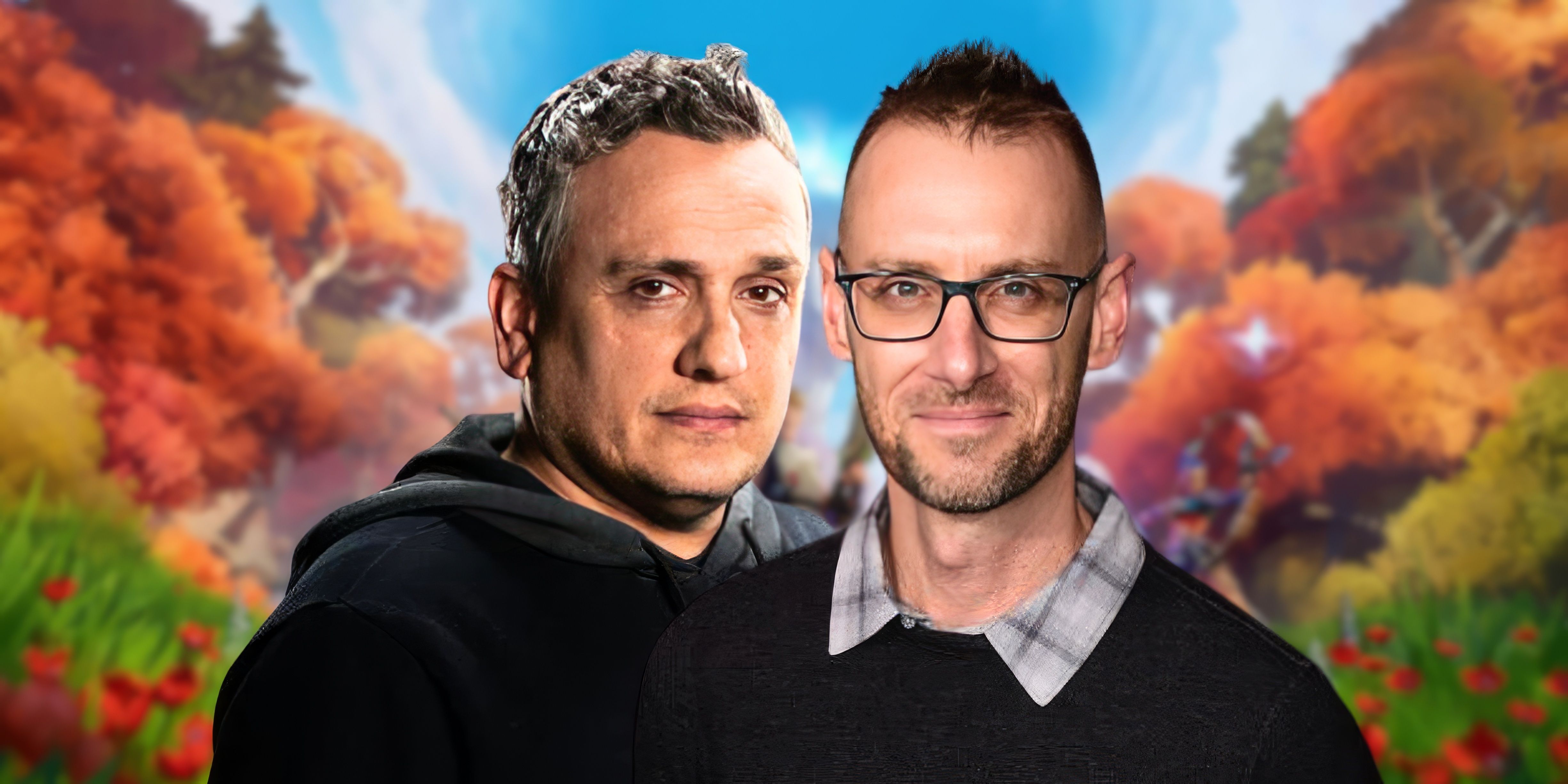
.jpg)
